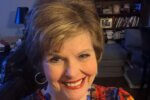
Brian Zahnd, pastor of Word of Life Church in St. Joseph, Mo., tells you exactly what to do in his new book, What to Do on the Worst Day of Your Life. He offers what he calls a “prophetic template” that we can use to overlay our lives—like a biblical blueprint to show us step-by-step how to recover from loss and go forward with life. He clearly shows that no matter how deep our pain, it’s not the end; God has a plan for full recovery.
Zahnd explores David’s experience at the town of Ziklag (see 1 Sam. 30). David and his fighting men returned to Ziklag and discovered that they had lost everything. Amalekite warriors had kidnapped their wives and children, stolen their possessions, burned their town to the ground—and disappeared into the wilderness.
But that was not the end of the story. Ultimately, through their faith in God and their obedience to His plan, David and his men recovered all that was lost—and then some.
The averted Ziklag disaster is more than an inspiring story of hope—it provides us with a pattern for faith, for encountering God’s restorative power to change tragedy or loss. Zahnd discusses his hope-filled message with Charisma in the interview that follows.
Charisma: What do you say to a Christian who just lost his or her business, job or home?
Brian Zahnd: That’s what the book’s about. First, if you are so inclined, do precisely what David did. The first thing he did was weep. You can be human. Jesus wept; He shed the tears of God. And He didn’t just weep once.
So, it isn’t like the first thing you have to do is suddenly be some sort of superspiritual faith man. Stoicism has really nothing to do with authentic faith. Pain is real.
There are many kinds of loss in life—financial, divorce, death. It’s easier in a sense to have a cavalier attitude toward a financial loss, but financial loss is real loss because so much of our identity, sense of security, concept of self-worth, and how we view the future come from our source of income. If it’s severely threatened, the insecurity, pain and fear that people feel is real.
But, then the book deals with all these other things—don’t get bitter, encourage yourself, get a word from God, reorient vision, regain passion—there really is a process. [The book] is kind of a prophetic template we can lay over our lives. There is a way to recover. I mean, there really is—it’s not the end.
Charisma: We are in one of the most challenging economic seasons in America’s history. How has this affected people you know?
Zahnd: I’ve kind of wondered if things are really bad—or is it that we now are in the era of 24/7 news channels, and so everything is magnified. But I’ve been a pastor for 27 years, and I have never seen so many people facing severe financial crises.
At any given moment there are people who are going through hard times. If you pastor a congregation, you know this. But I’ve never known a time when so many were.
Frankly, this includes the kinds of people who maybe in their life have never faced severe financial challenge. That hasn’t been their experience, and all of a sudden, it is. I think it’s a big deal.
Charisma: Some people get mad at God when circumstances get tough. How can we avoid that reaction?
Zahnd: The inclination to go in that direction is somewhat understandable. You see it played out in the story of Job. But understand that God Himself is no stranger to loss.
Let me put it this way: David comes to Ziklag and finds the city on fire, his possessions stolen, and his family taken captive. Well, God comes into the Garden of Eden and finds His creation on fire, His world stolen, and His sons and daughters taken captive.
He is not standing aloof from the experience of human sorrow and loss. His participation in our suffering is not an exercise in empathy; He is participating in the process to bring us to a place of full recovery.
Sometimes it’s easy to think, If God is God, then why did He allow this to happen? If God prevents everything from happening, then are we nothing more than an extension of God’s thought-life? If we are going to be authentic entities, then the risk of loss and pain and suffering has to be present.
So, I think it’s part of God’s project—to create authentic beings who have capacity for free choice. There’s risk involved in that, but if we will continue to trust God, I think the rewards far outweigh the risk.
Charisma: How then does a person “encourage himself in the Lord,” as the Bible says David did at Ziklag?
Zahnd: Psalm 34 is the very famous psalm of David, which starts out: “I will bless the Lord at all times. His praise shall continually be in my mouth. … Oh, magnify the Lord with me; let us exalt His name together.”
The incident that inspired David to write that psalm had to do with his escape from Gath and King Akish. It had happened about two years earlier in David’s life. Then he talks about “magnifying the Lord.”
Now, magnifying doesn’t actually make something bigger or smaller. It doesn’t enlarge it in reality, only in perspective. The key is that what we will focus on—for example, talk about, pray about—that thing will become larger in our perspective.
And if we will begin to praise and worship God, even when we don’t feel like it—understanding that we don’t feel like it, but we do so anyway—it has a way of connecting us with the power, potential and reality of God in such a way that it really does encourage us.
Though God knows what it is to suffer, and though God does participate in sharing sorrow with us, God is never discouraged because God has a plan and a way of recovery. And as we focus on Him, we begin to see that maybe there is a way to go on in life and recover.
Charisma: David recovered all that he lost at Ziklag. Do you think America will go through economic recovery?
Zahnd: First, I’m not an economist, so I don’t know. Second, not only did [David] recover all, he actually came out ahead—he ended up recovering the Amalekites spoil, and Nathan [the prophet] said, “This is David’s spoil.”
But, the true value of David’s recovery is not that he has more flocks and herds and silver and gold than before Ziklag. [It] is that 3,000 years later we are still telling his story and people are deriving hope from this seemingly catastrophic episode in David’s life that turned around and became a good thing. I think that is David’s true spoil.
So, what I’m convinced of is that no matter what the economy does, we can still pray, “Give us this day our daily bread.” We can still believe that God is our provider and that we will come through this with a story, with a testimony, with—as Peter describes it—“faith that has been through the fire,” whose authenticity can be vouched for because it’s actually been tested and tried.
Economically, my guess would be, yes, [America] will recover, but I wouldn’t say to anybody, “Trust me on that.” I would say, “Put your faith and trust in God, and He will take care of you, and you will come through this with a story and a testimony of how God has cared for you, which will be more valuable to you than any 401(k).” I mean that deeply and passionately and seriously.
Charisma: Some people are describing current events as the “perfect storm.” Things are shaking economically, politically and in the church. What’s your take on this?
Zahnd: I think part of what is happening is, we are seeing a judgment from God [because Americans have made an idol of the economy]. Now, “judgment” doesn’t mean that God is necessarily personally, actively manipulating things to go wrong. God has created a moral universe—so an economic system that is built upon and fueled largely by avarice and greed eventually will implode. You can call that “judgment”; it’s a course corrective—because God has created a moral universe.
I think that if there is any hope for spiritual renewal in America, America is going to have to find a way to be wooed away, or torn away, from the false idols of consumerism, economy and worship of our security. I also think one of the false idols the evangelical church has been guilty of putting too much faith in is a political process. We think that a certain party has to be in power for the purposes of God to be accomplished.
We are taught to pray: “Thy kingdom come. Thy will be done.” Let’s say it this way: “Thy government come. Thy policy be done.” Now, I would certainly fall within the camp of a social-conservative, but I think that maybe if we don’t have our hands upon the reigns of power, politically, it’s not altogether a bad thing because Jesus did not give us the sword of political power; He gave us the keys of the kingdom. And we should learn from history that the church has a rather dismal history of wielding political power. Maybe we need to get back to the keys of the kingdom and an emphasis on that.
Charisma: In order for people to praise God in the midst of difficult times, is there a secret about praise we need to understand?
Zahnd: I don’t know if there’s is a secret, but it’s helpful to understand you can praise God beyond your understanding and that praise is a choice. It’s not based on whether or not you feel like [praising].
Paul and Silas in that prison in Philippi at midnight—they had a dream, of someone saying, “C’mom, help us.” And so they come and try to help people. Eventually they are arrested, beaten and thrown into prison. You know, the natural human response would be, “If I’m doing God’s will, then how did I end up in this mess?” Yet, at midnight they sang hymns of praise. I don’t think they felt like it.
So, there is a leap of faith we make when we say: “Look, I believe that God is good and is worthy of my adoration and my praise whether I understand what’s going on in my life or not.” If we can do that, I honestly think that it causes things to begin to happen, and it activates God in a certain way that doesn’t happen otherwise.
Charisma: Your new book, What to Do on the Worst Day of Your Life, is based on a sermon you preached. What prompted you to tell people about the worst day in David’s life?
Zahnd: It goes back to 1993. My secretary told me: “It seems like an awful lot of people are going through a really hard time right now.” She meant in our church. A few minutes later, I had what I would say was a real divine encounter.
I remembered when David had a bad day. He returned to Ziklag and found the place burned to the ground. All his possessions were stolen. His family had been carried away by the Amalekites. But he found a way to recover.
So I thought, I can do something with that. I preached a sermon on it at a Friday night church gathering. And I thought, That’s that—but people started to duplicate the message.
A few years later, somebody said, “You really ought to put that in print.” So I cranked out this 130-page book. I self-published 5,000 of them, sold them in my church, sold them here and there. … Basically I forgot about it, but I would hear things—from people about the book.
Then on December 4 this past year, [pastor] Jentezen Franklin called me. Interestingly, he was the second person to talk to me that week about the book. He simply called to say he’d gone through a difficult time, had found the book, he and his wife had both read the book twice, and he was calling to express his appreciation.
He asked me, “Are you interested in publishing it?” And I said, “No, I’m really not.” So, he said, “Would you mind if I made some phone calls?” I didn’t. Strang was very interested in just publishing it, so over the holidays and while traveling in Europe, I redid it.
I would say it’s at least 80 percent new material. I tell people, if you read the old one, you really haven’t read the new one. The general story line of following what David did, that remains the same—other than that, it’s brand new.
Charisma: What do you consider to be the worst day of your life?
Zahnd: What I would say is, that to be a pastor my most painful days—what I would describe as my worst days—have to do with people you have helped. I know a little bit of the pain of what I would call “the knife wound of betrayal” from people you have helped and people you have done your best for. I would have to say, the betrayal of personal friendships.







Leave a Comment
You must be logged in to post a comment.